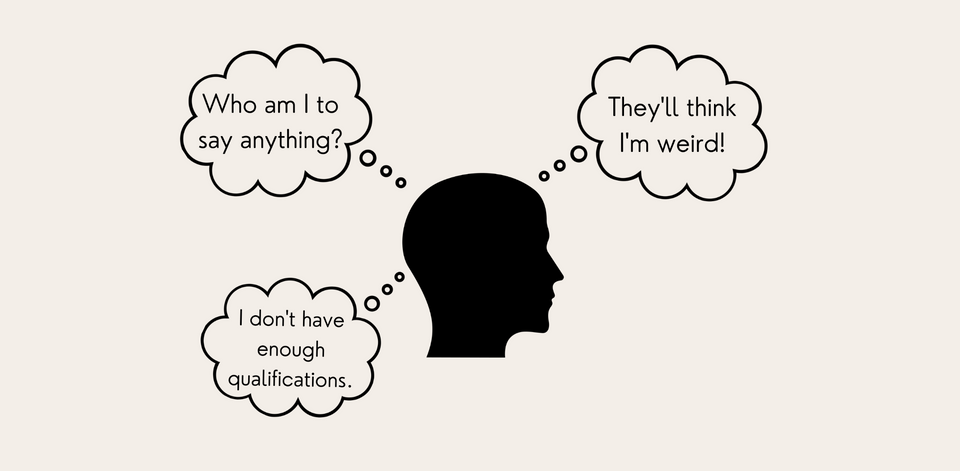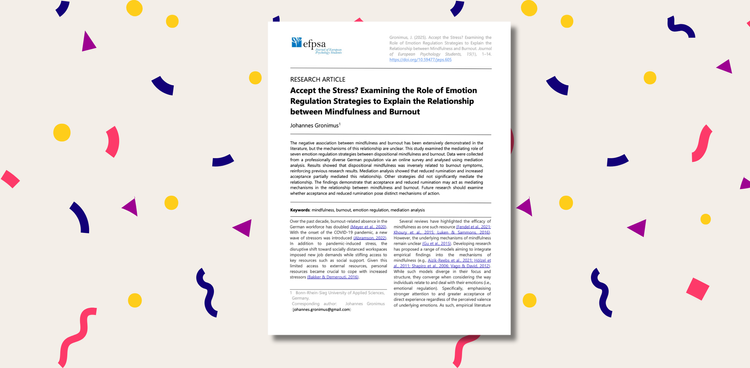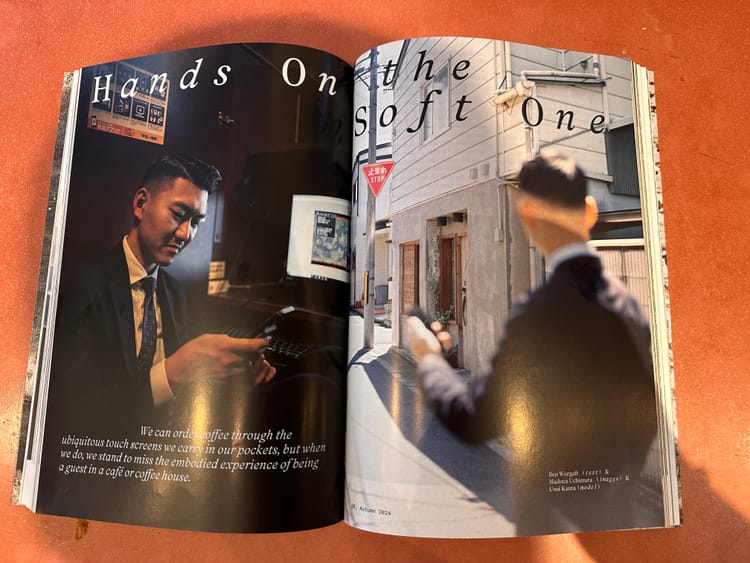Imposter Syndrome

We’re probably all familiar with what pop-psych loves to call impostor syndrome. That feeling of “who am I to speak about x as if I knew anything?”. While it originally referred to discarding one’s accomplishments as pure luck rather than skill¹, I don’t even need the accomplishment to feel like a fraud.
Just the thought of putting out something that falls short of flawlessly researched and co-signed by an expert feels weird. It feels like assuming some pretentious role of “I know something” when in reality, I obviously don’t.
With these thoughts in mind, I’ve been comfortably putting off writing about what I’m learning, even though it’s basically just the “textification” of what anyone I meet has had to endure ever since I found out psychology existed: rambling on about “that super interesting concept I learnt last week reading book xy” or “how weird it is that humans tend to …”.
So why did this post finally see the light of day?
I think it was a combination of hearing the right things at the right time, piling up to the point where not starting just felt stupid. And the magical messages?
The Curse of Knowledge
Ever wondered why getting directions from locals can be quite frustrating and rather unhelpful? This is a perfect example of a cognitive bias known as the curse of knowledge² - once you know something, you cannot imagine how it would be not knowing that thing. The locals simply know their environment too well and assume you know where “the tree” is to just turn left there.
The very same curse of knowledge even manifests in cognitive tasks where 1st graders routinely perform better than 5th graders, precisely because the 5th graders are more educated³. Knowledge sharpens your focus, allowing you to catch subtle details that a novice would not catch, but losing the bigger picture in the practice, making it harder to understand a novice's perspective.
I frequently find myself running into this trying to explain her smartphone to my 62y/o mum - I’m just terrible at it because I assume so many things are “given” and “obvious”, and end up missing the parts that are crucial to understanding.
Well, if experts sometimes miss the intricacies that not-yet-experts need, doesn’t that make a not-yet expert’s perspective somewhat valuable?
To me, this thought helps with the credential part of imposter syndrome - I’m not qualified enough to share xyz - because it is precisely that fact that makes it valuable. Your perspective is just more relatable.
My Takeaway: Even if you’re not an expert yet, sharing your learnings can bring relatable value to others.
The Spotlight Effect
Aren’t humans so wonderfully self-centered? One of the first thoughts that pop into my mind when considering putting myself out there goes along the lines of “Surely, everyone will make fun of me”. But to make fun of me, someone would first have to care enough, right? To no one’s surprise, there’s another cognitive bias at work here - the spotlight effect⁴. I just vastly overestimated the degree to which others pay attention to me - there’s no social spotlight on me.
No one cares enough to make fun of, or even to remember what I post.
And I mean this in a very positive way! Once we realise that, like us, everyone else is way too focused on their own bad hair day, stain on the shirt or if they sit weird to notice your presentation slip-up, we become surprisingly free in our actions.
So the next time you’re feeling anxious about holding that presentation, try to remember if the person that presented last week slipped up in theirs.
In their eyes, I’m sure they did - and they probably went to bed thinking about it. But do you remember? Probably not. More likely, you were pondering ways you might mess up in your presentation next week.
To tie this back into imposter syndrome, becoming aware of this self-centredness helps with its external component - others will find out I’m a fraud.
My Takeaway: To question my credentials for writing about psychology, people would have to care - and they probably won’t.
“Relax. Others likely won’t notice, and if they do, they likely won’t mind.”— Nick Epley in Mindwise³
Alright, so what exactly is there to take away from this post?
- Even without several Ph.Ds, you probably have something valuable to share - precisely because still being on the journey enables you to better understand your peers
- If you want to do something, just go ahead & rest peacefully in the wisdom that no one cares enough to background check every qualification you have. They are busy ruminating on the weird way they said “thank you” to the ALDI cashier this morning
PS: The curse of knowledge is also responsible for a big chunk of communication problems. But that’s for another time.
Links:
1 Dancy, T (2017). ‘Impostor syndrome’. In The SAGE encyclopedia of psychology and gender (pp. 934-935). https://dx.doi.org/10.4135/9781483384269.n313
2 Soeiro, L (2021), ‘What’s the Curse of Knowledge, and How Can You Break It?’, Psychology Today, https://www.psychologytoday.com/us/blog/i-hear-you/202104/whats-the-curse-knowledge-and-how-can-you-break-it
3 “Your own beliefs serve as a lens for understanding what others are likely to believe, as well as how strongly they are likely to believe it. But your mind contains multitudes, and beliefs are not the only lens that can alter your perceptions. Knowledge can also do it. For example, read the following sentence:
FINISHED FILES ARE THE RESULT OF YEARS OF SCIENTIFIC STUDY COMBINED WITH THE EXPERIENCE OF YEARS.
Now please go back and count how many f’s appear in that sentence. This is important. I’ll wait for you. How many did you find? More than you can count on one hand? If not, then we have just confirmed that you are a terrific reader but a terrible counter. Try it again. Look harder. I’ll be patient. Found all six yet? Don’t forget that “of” has an f in it.
See them all now? Most people who read this sentence fail to spot all six of the f’s on their first pass. Instead, most see only three. Why so few? This example has nothing to do with your beliefs and everything to do with your knowledge. Your expertise with English blinds you from seeing some of the letters. You know how to read so well that you can hear the sounds of the letters as you read over them. From your expert perspective, every time you see the word “of” you hear a v rather than an f and, therefore, miss it.
This is why first graders are more likely to find all six in this task than fifth graders, and why young children are likely to do better on this than you did as well. Your expert ears are clouding your vision.”
Excerpt from: Epley, N (2015), Mindwise: why we misunderstand what others think, believe, feel, and want. https://www.nicholasepley.com/content/book
4 Gilovich, T, Medvec, VH, & Savitsky, K (2000), ‘The spotlight effect in social judgment: An egocentric bias in estimates of the salience of one’s own actions and appearance.’, Journal of Personality and Social Psychology, Vol. 78, No. 2, pp. 211–222, http://dx.doi.org/10.1037/0022-3514.78.2.211




Comments ()